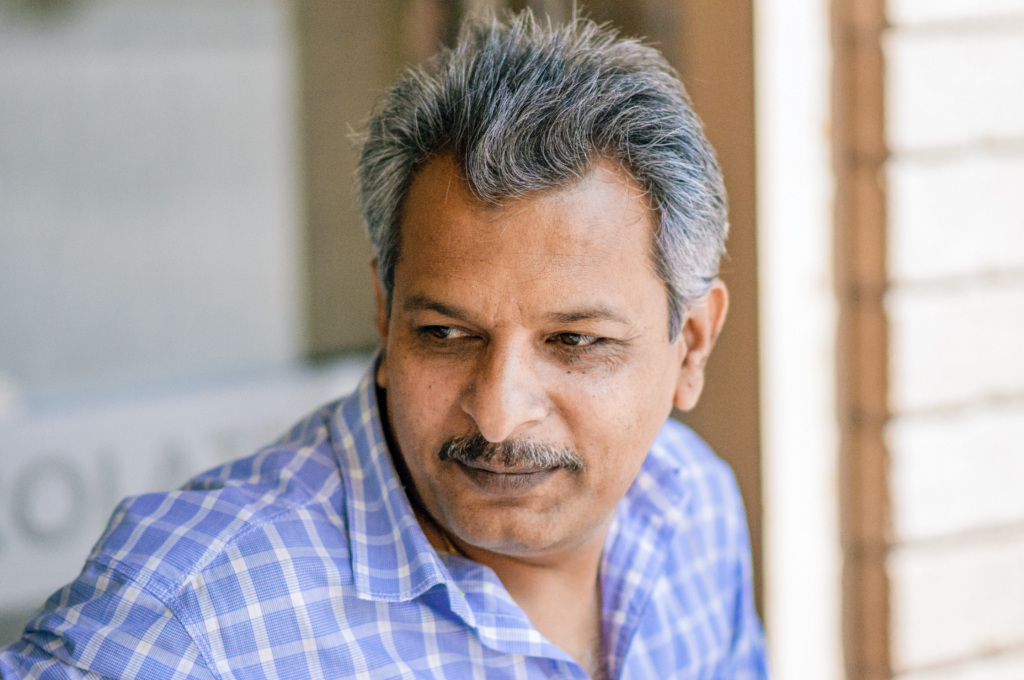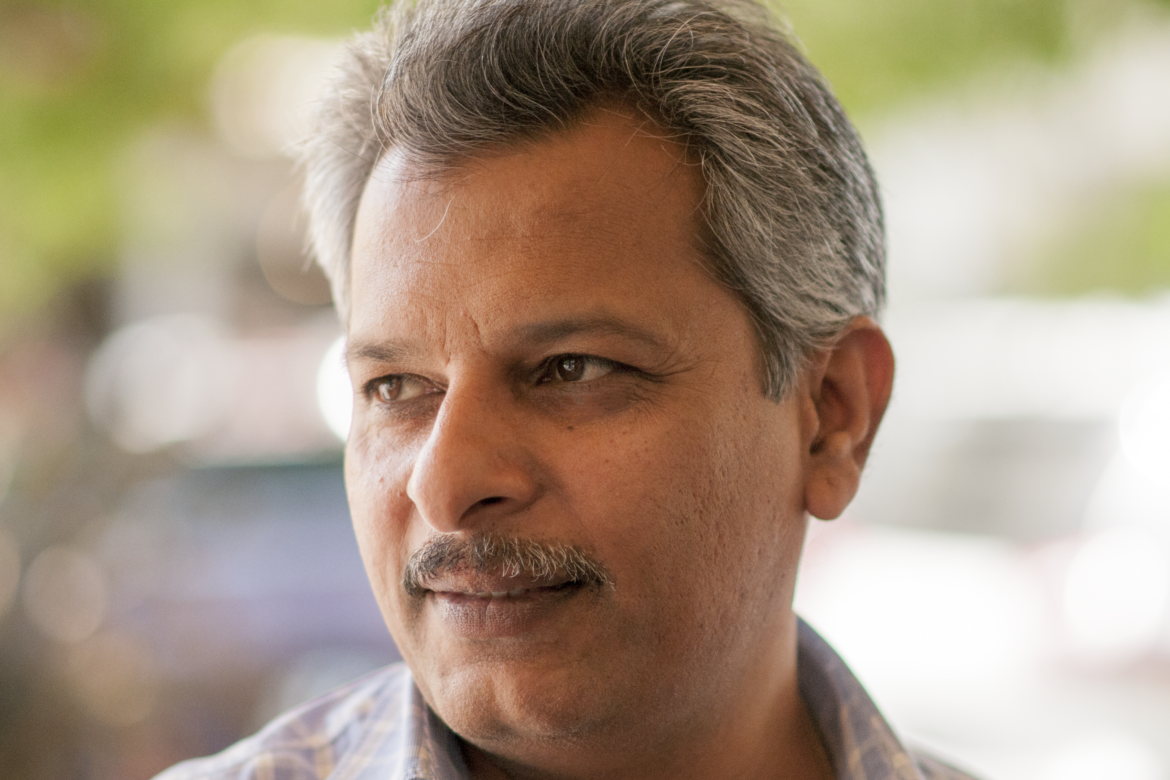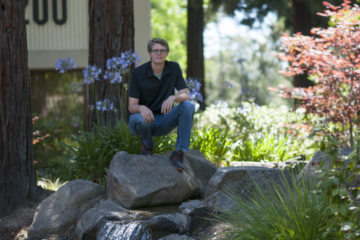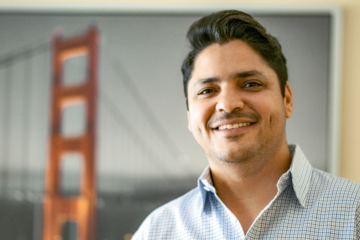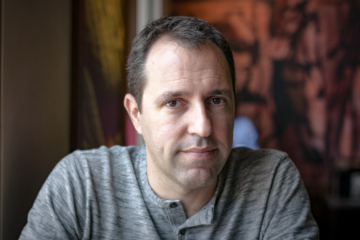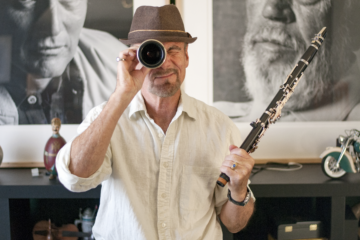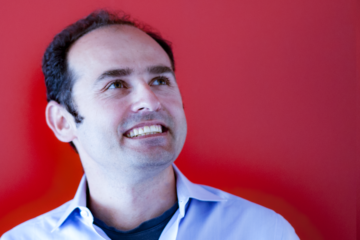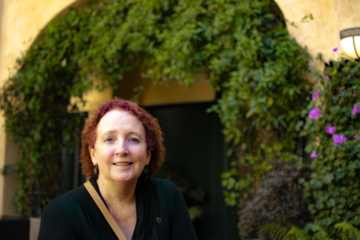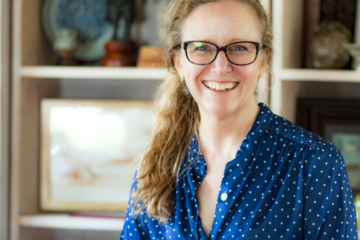Shrikant: Founder, Chaperone
“I saw a problem and a solution. Just felt that there’s a need and I want to help.”
Message to entrepreneurs: “You Have to Get Out of Your Comfort Zone”
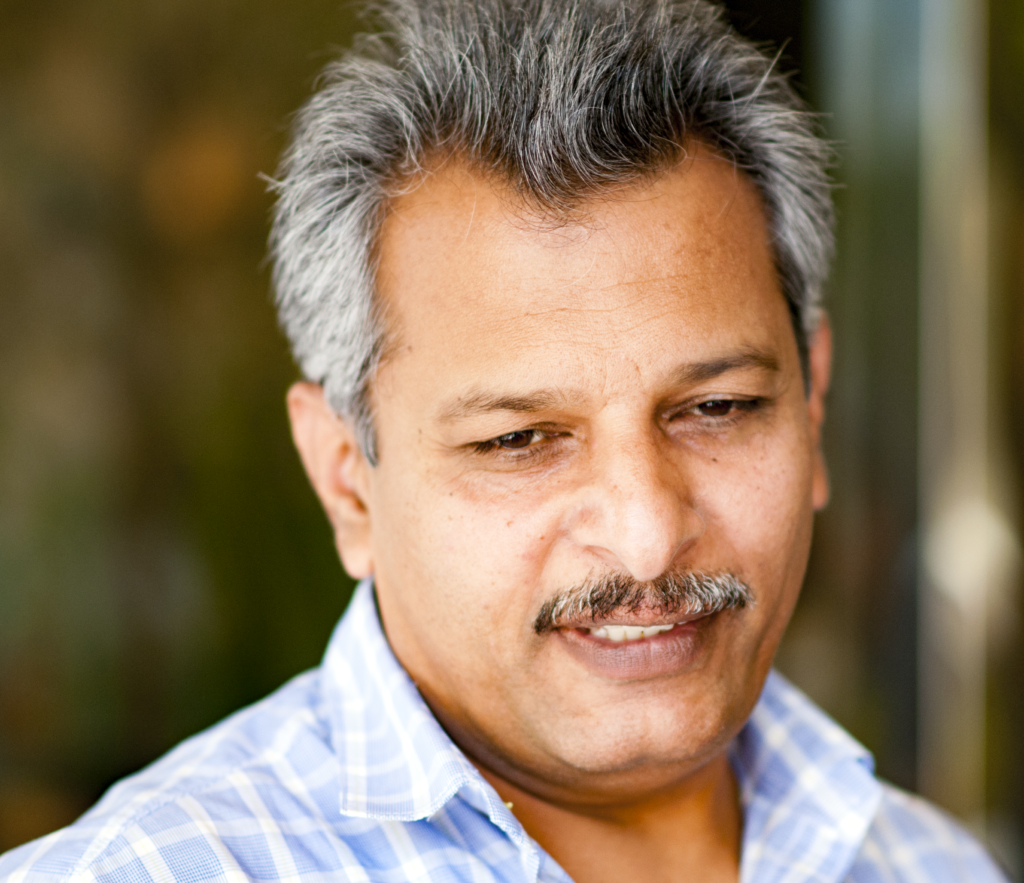
Reason for Becoming an Entrepreneur:”I Saw a Problem and a Solution”
I didn’t become a founder because I wanted to do a startup. I saw a problem and a solution. Just felt that there’s a need and I want to help.
My friend said, “Oh, you’re just going through a midlife crisis.” I said, “If this is a midlife crisis, I love it because now I’m doing something that matters.” For twenty years I was a freelance designer. I enjoyed the freedom, but I never felt that I was making a difference. As long as I didn’t bother anybody, I thought I was doing ok.
But the bug was there all the time, right from the beginning. I would look at doctors and think they’re making a difference, but I am not doing anything with my design.
My life has more meaning now. It’s not about me trying to get this idea out, it’s about trying to help. I don’t care as much about having my favorite food or nice clothes or a nice vacation. I actually feel good, not like I am missing out. I want to pour everything I have into this thing.
I want to make a difference.
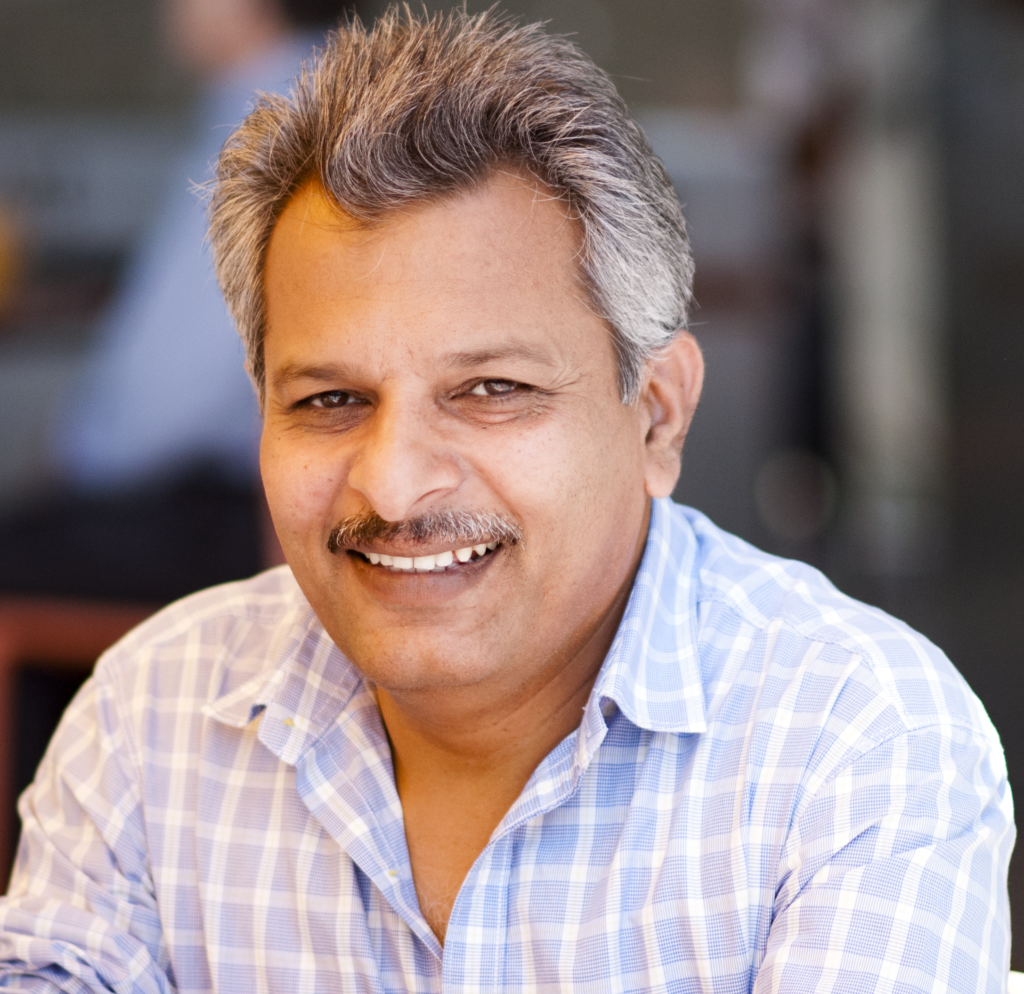
Early Life: “I Always Followed My Heart”
When I was growing up in India, I knew for sure I would be a designer. As far back as I can remember, I’ve been drawing. Luckily for me, my father was a designer by hobby, and he pushed me in that direction. I knew that I wasn’t good with science and other things, so I thought design would be my savior, and it has been.
I didn’t think I had what it takes to be an entrepreneur. I was a laid back person who was happy doing my designs and letting somebody else lead. Even now, I am not 100% comfortable leading, but I have to do it to get to my goal. So I do it.
When I was young, I may not have been the group leader, but I always did what I felt in my gut and instincts. When I was ten or twelve years old, people would say, you shouldn’t do this or that, but if my instinct said to do it, then I went and did it. Regardless of what others said, I followed my heart.
Following my heart–even if it doesn’t seem to make rational sense at the time–has helped me. No founder is going to do what they’re trying to do solely because it makes rational sense.
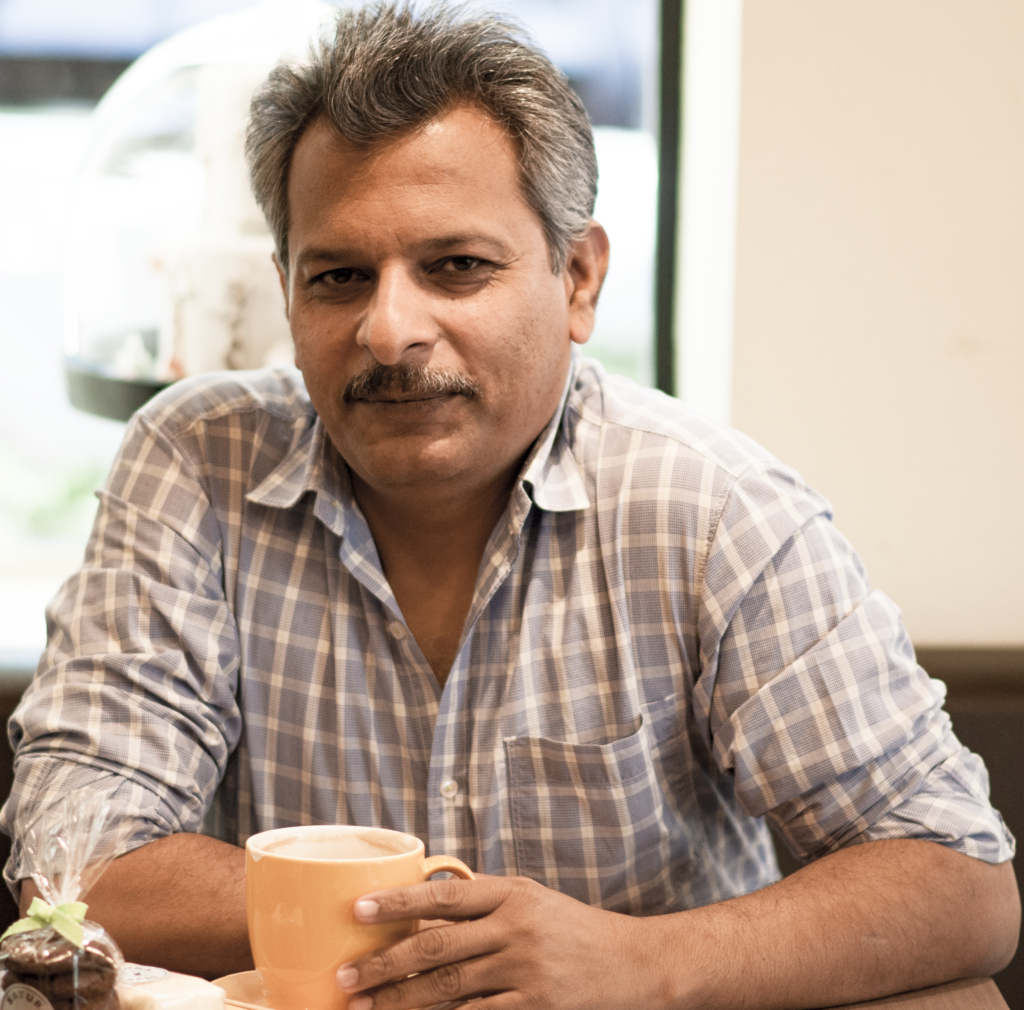
Developing the Idea: “I Had an Epiphany”
About five years ago, I got to do a startup in the Ed-Tech space with a friend of mine. I saw a solution to a problem, and I enjoyed making a difference. That got me in a startup mode.
Now fast forward. I’ve pivoted from that project, but the entrepreneurship bug stayed with me.
So the obvious thing was to go to the mecca. To Silicon Valley. Silicon Valley has been very good so far. The resources are better here than in Los Angeles–where I lived for several years–in terms of investors, advisors, and prospective employees. There’s tons of money here, and if you have a good idea, it will get funded.
I began to develop a plan for a rideshare company to help parents take their kids to and from school–a transportation platform with a vetting process to ensure safety. At first, I thought of it as a simple transaction, like any rideshare: You help me, I help you, I pay you and that’s that.
About six months ago, I had an epiphany. I was at the school dropping off my kids, and I saw a parent who seemed to be a stay-at-home mom. Most parents in the morning are literally kicking their kids out and rushing to work. But she was one of those parents who takes her time to park and drop her kids off and talk with other parents.
I approached her, explained my start-up, and asked if she would be interested in helping us pilot as a chaperone.
She said, “Oh, I would love to be part of it, but I’d be more of a rider than a chaperone. I’d like someone to drive my kid so I could go and get a full time job.”
I went back and looked at the data, and I found that many parents who want to work can’t do so because they don’t have this one little thing–their children’s transportation–solved. So they’re stuck at home. I thought, wow! The rideshare would not just be a convenience: It would help dual-career couples balance childcare and paid work with less stress, and it would fill a need for parents who want to go out into the workforce.
I began to see the problem and solution differently–it isn’t simply a matter of individual transactions. By designing a transportation platform that enables a sharing community, families are better able to meet their needs, and there is less CO2 production too!
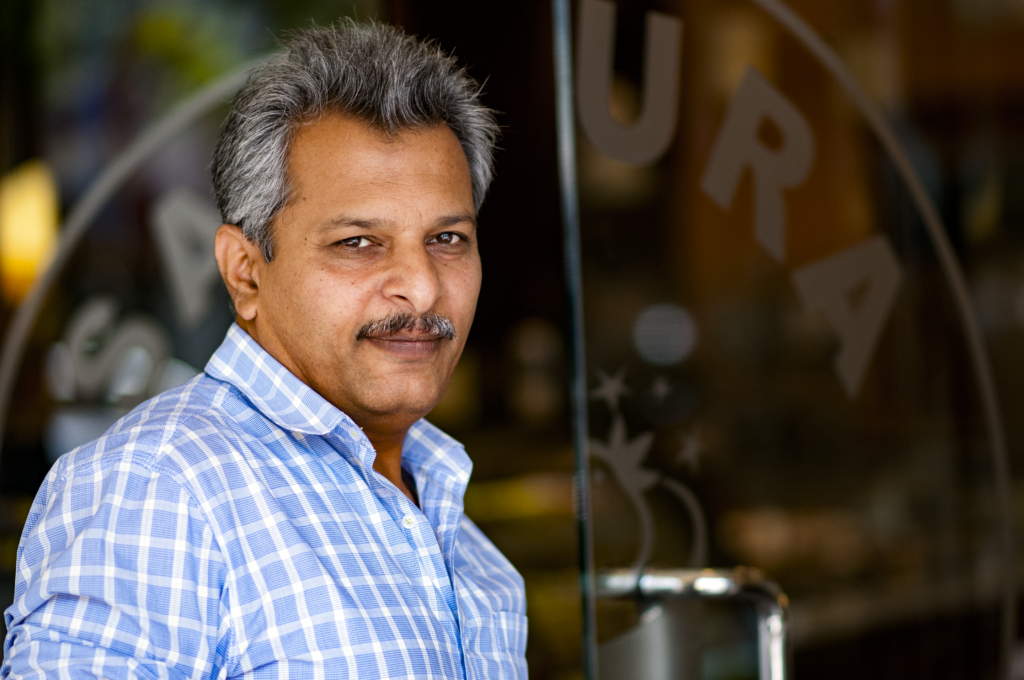
Getting Support: “You Need the Right Friends”
As a founder, you learn to find the right friends–people who will support you instead of those who say, “Oh, you’re being crazy again.”
What I find is that the people I least expect to help are the ones who do. It’s never going to be that ideal person who has the right connection and with one phone call I am done. That’s usually the last person who helps. Usually the one that helps is the friend who has no concept, but he says, “Tell me how can I help.” They’ll go out and spread the word and get things done for you.
It can be lonely to be a founder. I don’t mean on a personal level. I mean that you want to have enough people around to brainstorm and try things out and narrow down ten ideas to two.
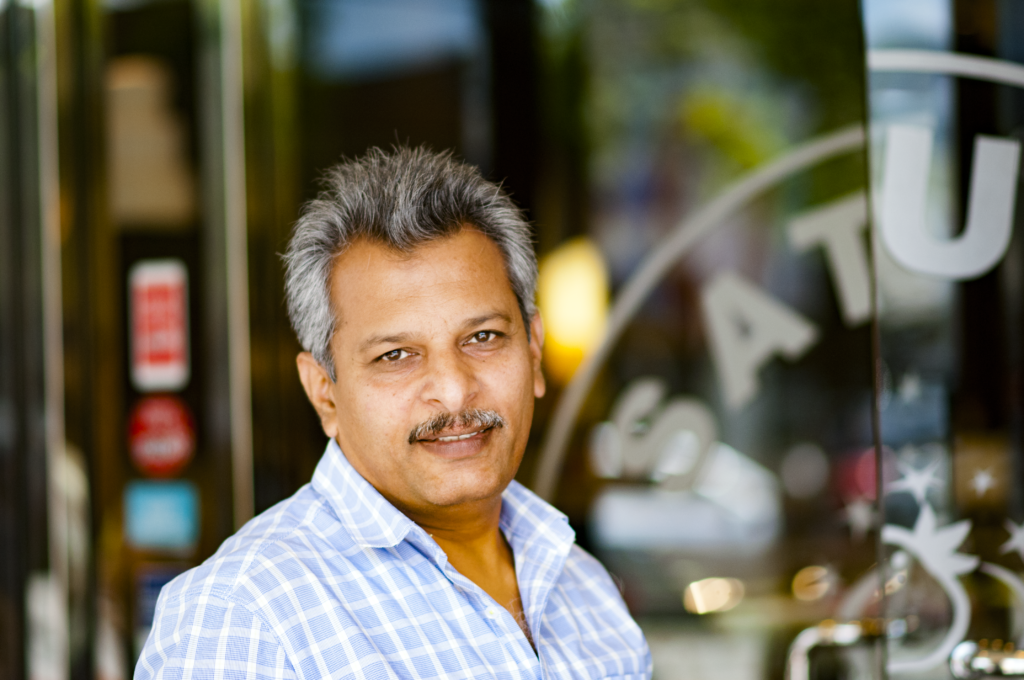
Family and Career: “You Should Meet My Family”
My parents motivate and encourage me. When I returned to the U.S., my parents weren’t happy. They said,”Oh, I thought you were going to stay here now for good.” So, I tried to explain to them. Even though they weren’t happy, they understood what I was trying to do, and I know my brothers are there to take care of them.
My wife encourages me too. I’ve been blessed. She’s been an amazing partner from Day 1. We’ve been married 17 years and lived in 12 different homes in 3 different countries with 3 kids. She’s game all the time. When I tell my friends, they say that their wives would skewer them. It helps me to have someone like her, who encourages me and doesn’t nag.
Some people tell me, “What, you’re already 50! You have a wife and 3 kids, and you’re doing a startup?!” They think it’s a lot of baggage. They think that as a founder you won’t put in the 18 hours and the work required. I am proving them wrong, but the stereotype is there. I tell them, “You should meet my family. You should meet my wife.”
The startup has brought us closer together as a family. I’ve always worked from home designing. My kids were always involved in what I was doing with design. Now, with the startup, they’re spreading word at school and getting their friends involved.
I’m proud of my kids. The other day, one of my twin boys asked for a basketball. I said, yes, we’ll get it, but because I was busy, it kept dragging week after week. After several weeks, the other twin boy said, “We’ll get it once we get the first check from funding.” He was being considerate and thinking, why spend $8 now. I felt kind of bad as a father, but at the same time, I felt very proud of him. He was growing up and thinking. Delayed gratification. This made me feel very close to him.
As an entrepreneur, I feel that I am expanding and stretching myself, and it benefits my kids too. Being an entrepreneur is like boot camp. It’s like you’re at West Point–it prepares you physically and mentally for life. You learn to thrive instead of just survive.
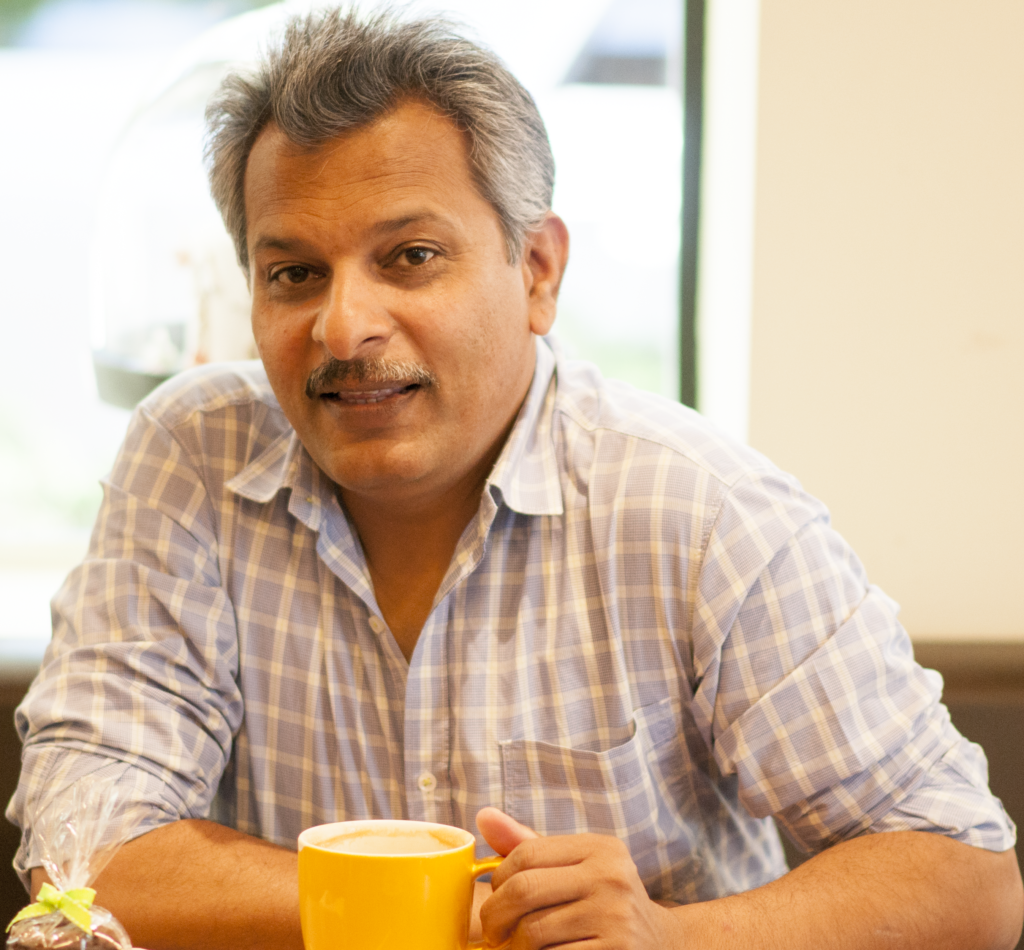
Life Lessons: “You Have to Get Out of Your Comfort Zone”
You have to get out of your comfort zone if you want to get something. You can’t be laid back.
Having an idea is good, having a passion is good, but it’s still not enough. You have to get out of your comfort zone: You have to brag about what you’re doing and go out and hound people and grab their attention and even then, only if you’re lucky, they’ll take note, because there’s so much going on here in the Valley.
When I first started out, I thought, just because I have a good idea, people will notice it and help me. But it doesn’t work that way.
If I want to do something, I let my friends and family know. Now I have to hold myself accountable because they’re expecting me to do it, so I work harder.
As a founder, you need to take the plunge. Yes, things are going to go wrong. Yes, you will make mistakes. But you have to give 100% and not constantly question things. Because as a founder you have to do 1000 things and if you question things all the time, it’s going to slow you down.
One of my culture shocks when I came to the U.S. was the word million. It was so common here to say millionaire. I hadn’t heard it India. It was a sign of abundance–people here are actually thinking of ways to be a millionaire or even a billionaire.
I want my children to have big, audacious goals. In the last few years, I’ve started to think: Yes, I can be a millionaire. Yes, I can make a difference. It’s not simply about the money–its about believing in yourself. For the first 40 years of my life, I felt that it was always somebody else who could do things that mattered and not me. But now, I feel that I can do it. That’s the mindset I want my kids and future generations to have. You can think big and you can make it happen, with all the resources here.
